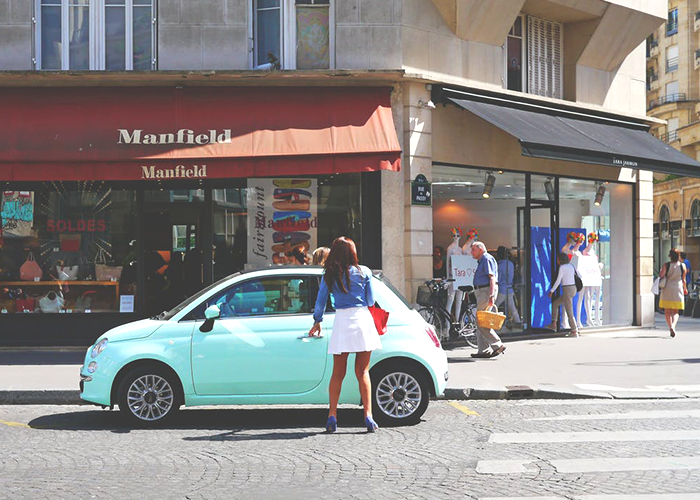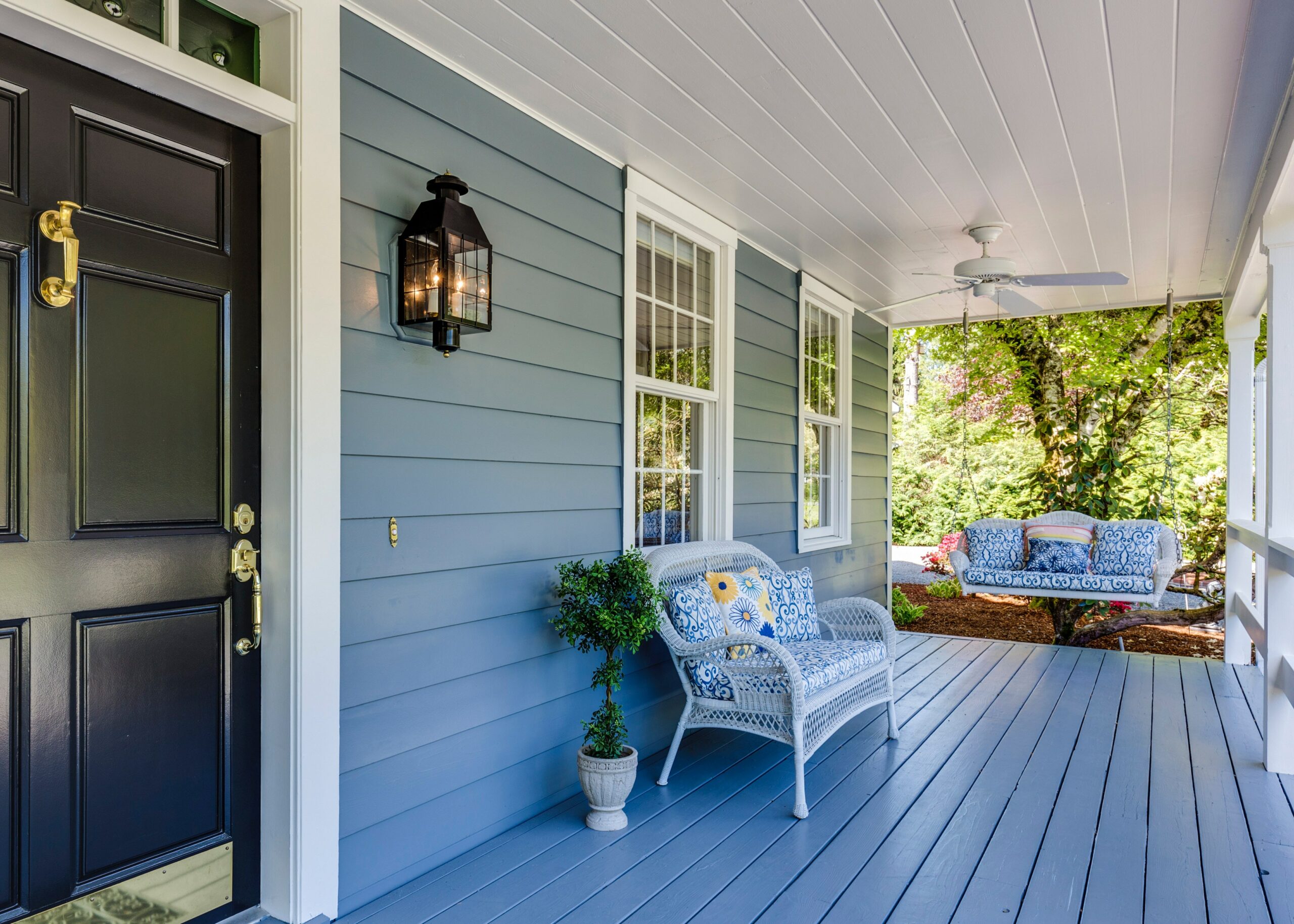3 Things I Learned From Buying The Kind Of Car My Family Couldn’t Afford Growing Up

When I was growing up, my parents never had new cars — they were always many years old (an inherited Oldsmobile from my Great Uncle, for one) and required frequent trips to the mechanic. I’d always admire the fresh interiors and modern styles of my friends’ parents’ cars — and the fact that the heat worked in the winter.
Even when I was fairly young, I didn’t understand why my parents wouldn’t invest in a new (or just newer) vehicle. Sure, they’re pricey, but weren’t all those trips to the shop adding up? Still, I assumed it must have made sense if they were doing it. And honestly, it probably did at the time, because saving up for a down payment on top of paying off a loan each month would have been a financial stretch for them.
Regardless, their tendencies didn’t prevent me from wanting a nice car for myself. Trips over a couple hours were often out of the question in whatever car we owned, because the risk of something going wrong didn’t seem worth the potential adventure. I dreamed of the freedom I’d feel on a long, stress-free drive in a reliable vehicle to a place I’d never been.
When I got my first full-time job at a women’s shelter after college and was finally making a little more than minimum wage, I started thinking about how to make this dream a reality. I wanted a dependable car to get to work in, and I also really wanted a way to visit my college friends who lived a few hours away. Because my mom let me live with her for nearly a year, I was fortunate enough to be able to put money towards my student loans while also saving up for a car. So, despite the fact that I was living “at home,” this was an extremely empowering time for me. Here’s what I learned throughout the process.
1. Credit isn’t that Scary
My parents were very fearful of any sort of credit card debt growing up, and that made me afraid of it as well. I think it’s cool that they were dedicated to only buying what they could afford in cash, but unfortunately, this habit can backfire when you do need a loan for a large purchase.
The first time I learned why credit is so important, and why people use it over cash, was when I was denied a student loan to a college I wanted to go to because my parents had absolutely no credit. At that time, I vowed that I would start building my credit as soon as possible (and props to them, because so did they — my mom applied for a credit card right away).
I got a credit card as soon as I graduated college, used it for small purchases, and was diligent about paying the bill on time. This combined with my regular student loan payments gave me a solid credit score. As most people know, but I didn’t for a long time, a good credit score makes life a lot easier, especially if you’re thinking long-term. A good credit score will make large, necessary purchases throughout your lifetime — like cars and houses — much more manageable.
When I went to a credit union (at the advice of a coworker at the shelter who regularly dealt with low-income clients seeking loans), the woman I spoke with as I applied for an auto loan was impressed by my score. Until that point, I hadn’t known what it was, and it felt great to hear. At 22, this gave me a ton of confidence in my finances and my ability to manage my credit score.
If you don’t already have one, I highly recommend applying for a low-interest credit card with a low annual fee. You won’t just benefit from a higher credit score the more you use it — you’ll benefit from the responsibility and resulting confidence it gives you. If you don’t have a comfortable amount of savings, start with very small purchases, and set a reminder each month on your calendar to pay it off. In a matter of months, bill-paying will become a habit, and you’ll likely start feeling less afraid of credit card debt.
2. And Loans Aren’t Scary Either
I definitely have some commitment issues (as in, I’m far from ready for a pet), and this extends to loans. But since I took out and paid off my car loan, I’ve felt way better about the process. I realized that if you make a purchase that is truly affordable for your financial situation, a loan can be pretty great. I bought a used (but still very nice) car with low mileage that was a few years old. It was about ten grand total, and I put five grand down that I’d saved up. That left me with a $5,000 loan for the remainder.
I could have just put $100 towards it each month and still paid it off in less than five years, but because I liked the idea of having one less bill as soon as possible, I put more towards it whenever I could afford to. Because I wasn’t dealing with rent costs, I ended off paying my car off pretty quickly. And when it was all said and done, I not only had a car, I had a real appreciation for loans. I realized first-hand that they could get me cool stuff I really wanted and needed, but couldn’t pay for simply with cash. I also realized that the right loan — I’m talking the right amount and the right interest rate — can be very manageable.
My advice here is to consider looking into a loan from a credit union. They specialize in low interest rates, meaning you can take your time paying off your loan without suffering from the added cost of large amounts of accrued interest.
3. Working Hard, Saving Up, and Buying Something You Want Feels Really Good
Growing up with a lot of material items that were less than perfect taught me to really appreciate and value things that are nice, new (or newish), and reliable. As a result, I find it fun and exciting to save up and purchase something I really want (yikes, that doesn’t make me sound very fun or exciting). What’s also cool is that when I do make that long-awaited purchase, it gives me a lot of confidence and pride.
I’ve found that the longer I save, the harder I work, and the more thought I give to what I’m buying, the more satisfied I am with myself and whatever I bought. This experience also tends to make me appreciate my belongings more, and thus take better care of them.
Despite the fact that I do love nice things, I am forever grateful for the fact that they weren’t always easily available to me growing up. This taught me what might be the most valuable financial lesson of all: We can get by with less than what our ad-inundated society tells us. Oftentimes, a lot less. This awareness has made me more open-minded, more careful about spending, and I like to think — though there’s always room for improvement — less materialistic.
Marissa is a New York City-based writer who loves feminism, doughnuts, and anything free. Her parents taught her the art of thrifting before she could even walk, and one of her earliest memories is of learning to ride a used bike inside of a consignment store while her mom shopped. Her mom bought her the bike. Read more of her writing here.
Image via Pexels




